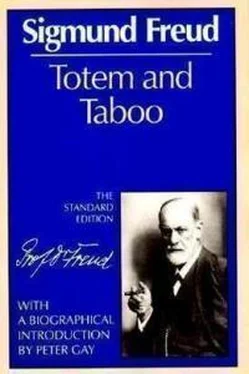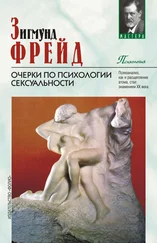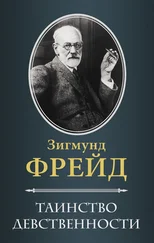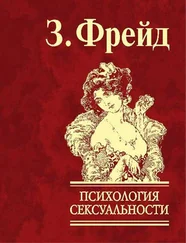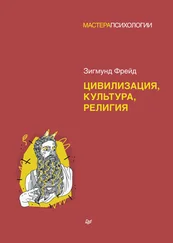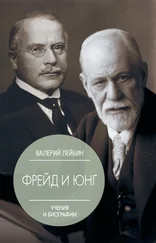Зигмунд Фрейд - Totem and Taboo
Здесь есть возможность читать онлайн «Зигмунд Фрейд - Totem and Taboo» весь текст электронной книги совершенно бесплатно (целиком полную версию без сокращений). В некоторых случаях можно слушать аудио, скачать через торрент в формате fb2 и присутствует краткое содержание. Год выпуска: 2014, Издательство: epubBooks Classics, Жанр: Психология, на английском языке. Описание произведения, (предисловие) а так же отзывы посетителей доступны на портале библиотеки ЛибКат.
- Название:Totem and Taboo
- Автор:
- Издательство:epubBooks Classics
- Жанр:
- Год:2014
- ISBN:нет данных
- Рейтинг книги:3 / 5. Голосов: 1
-
Избранное:Добавить в избранное
- Отзывы:
-
Ваша оценка:
- 60
- 1
- 2
- 3
- 4
- 5
Totem and Taboo: краткое содержание, описание и аннотация
Предлагаем к чтению аннотацию, описание, краткое содержание или предисловие (зависит от того, что написал сам автор книги «Totem and Taboo»). Если вы не нашли необходимую информацию о книге — напишите в комментариях, мы постараемся отыскать её.
Totem and Taboo — читать онлайн бесплатно полную книгу (весь текст) целиком
Ниже представлен текст книги, разбитый по страницам. Система сохранения места последней прочитанной страницы, позволяет с удобством читать онлайн бесплатно книгу «Totem and Taboo», без необходимости каждый раз заново искать на чём Вы остановились. Поставьте закладку, и сможете в любой момент перейти на страницу, на которой закончили чтение.
Интервал:
Закладка:
It is equally clear how the violation of certain taboo prohibitions becomes a social danger which must be punished or expiated by all the members of society lest it harm them all. This danger really exists if we substitute the known impulses for the unconscious desires. It consists in the possibility of imitation, as a result of which society would soon be dissolved. If the others did not punish the violation they would perforce become aware that they want to imitate the evil doer.
Though the secret meaning of a taboo prohibition cannot possibly be of so special a nature as in the case of a neurosis, we must not be astonished to find that touching plays a similar rôle in taboo prohibition as in the délire de toucher . To touch is the beginning of every act of possession, of every attempt to make use of a person or thing.
We have interpreted the power of contagion which inheres in the taboo as the property of leading into temptation, and of inciting to imitation. This does not seem to be in accord with the fact that the contagiousness of the taboo is above all manifested in the transference to objects which thus themselves become carriers of the taboo.
This transferability of the taboo reflects what is found in the neurosis, namely, the constant tendency of the unconscious impulse to become displaced through associative channels upon new objects. Our attention is thus drawn to the fact that the dangerous magic power of the ‘mana’ corresponds to two real faculties, the capacity of reminding man of his forbidden wishes, and the apparently more important one of tempting him to violate the prohibition in the service of these wishes. Both functions reunite into one, however, if we assume it to be in accord with a primitive psychic life that with the awakening of a memory of a forbidden action there should also be combined the awakening of the tendency to carry out the action. Memory and temptation then again coincide. We must also admit that if the example of a person who has violated a prohibition leads another to the same action, the disobedience of the prohibition has been transmitted like a contagion, just as the taboo is transferred from a person to an object, and from this to another.
If the violation of a taboo can be condoned through expiation or penance, which means, of course, a renunciation of a possession or a liberty, we have the proof that the observance of a taboo regulation was itself a renunciation of something really wished for. The omission of one renunciation is cancelled through a renunciation at some other point. This would lead us to conclude that, as far as taboo ceremonials are concerned, penance is more primitive than purification.
Let us now summarize what understanding we have gained of taboo through its comparison with the compulsive prohibition of the neurotic. Taboo is a very primitive prohibition imposed from without (by an authority) and directed against the strongest desires of man. The desire to violate it continues in the unconscious; persons who obey the taboo have an ambivalent feeling toward what is affected by the taboo. The magic power attributed to taboo goes back to its ability to lead man into temptation; it behaves like a contagion, because the example is contagious, and because the prohibited desire becomes displacing in the unconscious upon something else. The expiation for the violation of a taboo through a renunciation proves that a renunciation is at the basis of the observance of the taboo.
We may ask what we have gained from the comparison of taboo with compulsion neurosis and what value can be claimed for the interpretation we have given on the basis of this comparison? Our intrepretation is evidently of no value unless it affords an advantage not to be had in any other way and unless it affords a better understanding of taboo than was otherwise possible. We might claim that we have already given proof of its usefulness in what has been said above; but we shall have to try to strengthen our proof by continuing the explanation of taboo prohibitions and customs in detail.
But we can avail ourselves of another method. We can shape our investigation so as to ascertain whether a part of the assumptions which we have transferred from the neurosis to the taboo, or the conclusions at which we have thereby arrived can be demonstrated directly in the phenomena of taboo. We must decide, however, what we want to look for. The assertion concerning the genesis of taboo, namely, that it was derived from a primitive prohibition which was once imposed from without, cannot, of course, be proved. We shall therefore seek to confirm those psychological conditions for taboo with which we have become acquainted in the case of compulsion neurosis. How did we gain our knowledge of these psychological factors in the case of neurosis? Through the analytical study of the symptoms, especially the compulsive actions, the defence reactions and the obsessive commands. These mechanisms gave every indication of having been derived from ambivalent impulses or tendencies, they either represented simultaneously the wish and counter–wish or they served preponderantly one of the two contrary tendencies. If we should now succeed in showing that ambivalence, i.e., the sway of contrary tendencies, exists also in the case of taboo regulations or if we should find among taboo mechanisms some which like neurotic obsessions give simultaneous expression to both currents, we would have established what is practically the most important point in the psychological correspondence between taboo and compulsion neurosis.
We have already mentioned that the two fundamental taboo prohibitions are inaccessible to our analysis because they belong to totemism; another part of the taboo rules is of secondary origin and cannot be used for our purpose. For among these races taboo has become the general form of law giving and has helped to promote social tendencies which are certainly younger; than taboo itself, as for instance, the taboos imposed by chiefs and priests to insure their property and privileges. But there still remains a large group of laws which we may undertake to investigate. Among these I lay stress on those taboos which are attached ( a ) to enemies, ( b ) to chiefs, and ( c ) to the dead; the material for our investigation is taken from the excellent collection of J. G. Frazer in his great work, The Golden Bough [45] Third Edition, Part II: Taboo and the Perils of the Soul , 1911.
.
( A ) THE TREATMENT OF ENEMIES
Inclined as we may have been to ascribe to savage and semi–savage races uninhibited and remorseless cruelty towards their enemies, it is of great interest to us to learn that with them, too, the killing of a person compels the observation of a series of rules which are associated with taboo customs. These rules are easily brought under four groups; they demand 1. reconciliation with the slain enemy, 2. restrictions, 3. acts of expiation, and purifications of the manslayer, and 4. certain ceremonial rites. The incomplete reports do not allow us to decide with certainty how general or how isolated such taboo customs may be among these races, but this is a matter of indifference as far as our interest in these occurrences is concerned. Still, it may be assumed that we are dealing with widespread customs and not with isolated peculiarities.
The reconciliation customs practised on the island of Timor, after a victorious band of warriors has returned with the severed heads of the vanquished enemy, are especially significant because the leader of the expedition is subject to heavy additional restrictions. “At the solemn entry of the victors, sacrifices are made to conciliate the souls of the enemy; otherwise one would have to expect harm to come to the victors. A dance is given and a song is sung in which the slain enemy is mourned and his forgiveness is implored: ‘Be not angry’, they say ‘because your head is here with us; had we been less lucky, our heads might have been exposed in your village. We have offered the sacrifice to appease you. Your spirit may now rest and leave us at peace. Why were you our enemy? Would it not have been better that we should remain friends? Then your blood would not have been spilt and your head would not have been cut off’” [46] Frazer, l.c. , p. 166.
.
Интервал:
Закладка:
Похожие книги на «Totem and Taboo»
Представляем Вашему вниманию похожие книги на «Totem and Taboo» списком для выбора. Мы отобрали схожую по названию и смыслу литературу в надежде предоставить читателям больше вариантов отыскать новые, интересные, ещё непрочитанные произведения.
Обсуждение, отзывы о книге «Totem and Taboo» и просто собственные мнения читателей. Оставьте ваши комментарии, напишите, что Вы думаете о произведении, его смысле или главных героях. Укажите что конкретно понравилось, а что нет, и почему Вы так считаете.
